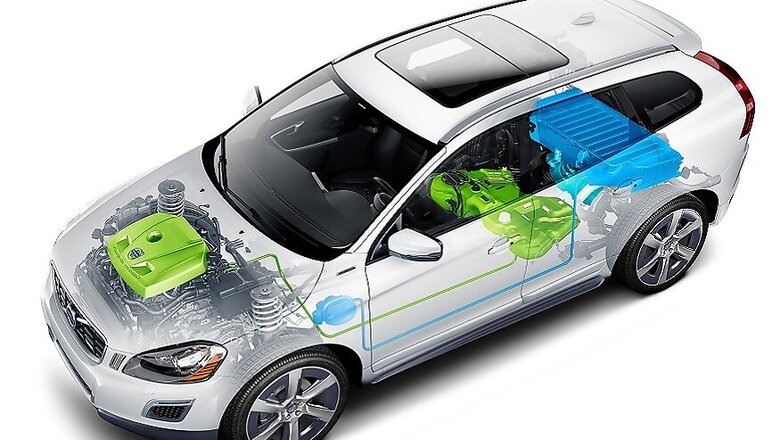
views
A few weeks ago Swedish motor manufacturer Volvo made headlines when it announced it would be going all-electric with its entire new vehicle range by the end of 2019. To be fair to the company, the statement was clear that it wasn't planning to ditch the internal combustion engine entirely by that date, but many consumers jumped to that conclusion. Volvo USA CEO, Lex Kerssemakers, has now gone out of his way to clarify the situation, while remaining upbeat about the company's direction.
Speaking at a media event in Denver, Colorado, last week, Kerssemakers reaffirmed that Volvo was not doing away with the combustion engine just yet. Instead, he said the manufacturer was looking to increase consumer comfort with alternative fuel sources by transitioning to EVs via gas/electric hybrids. He also hopes Volvo making a commitment to concentrate exclusively on hybrids will attract enthusiasts for the technology away from other brands, as well as those new to hybrids.
Kerssemakers admitted to the Automotive News publication: "You stick out your neck when you make an announcement like that. But we wanted to make a clear statement that we believe in electrification."
Of course, abandoning combustion-only new vehicle models by the end of 2019 isn't the only bold claim Volvo has made recently. Only last year, the company said it had an aim that no driver would be killed or seriously injured in a new Volvo by as soon as 2020. To reach that point, Volvo is therefore heavily relying on driverless vehicle technology, in a major initiative that requires new expertise that can't be developed without looking beyond what it has available in-house. So, partnerships need to be developed for joint development in areas such as software and computing.
There's no reason to doubt that Volvo will achieve its aims though. After all, back in 2008 Volvo started on a path of offering only vehicles with engines with no more than four cylinders. Overcoming doubts that reduced engine size would dramatically affect vehicle power didn't turn out to be an issue, as buyers didn't seem to be worried about it at all. Volvo now sees its next big challenge as educating consumers that batteries don't mean having to drastically change their entire driving experience.
Also Watch: New 2017 Hyundai Verna First Drive Review | Cars 18




















Comments
0 comment